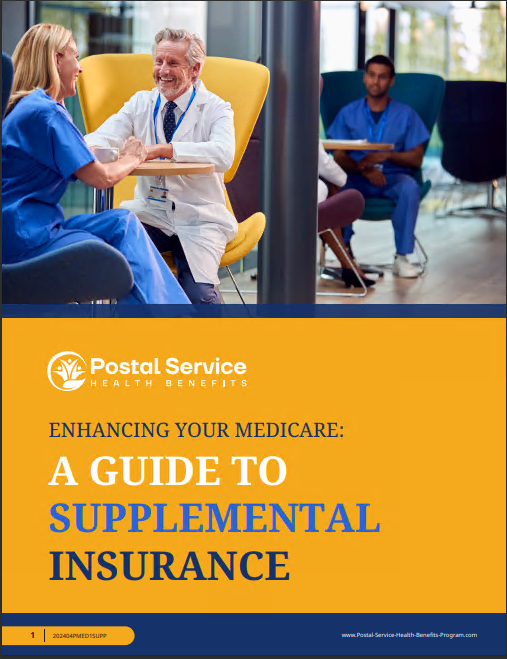Key Takeaways
- USPS retirees need to understand various strategies to manage healthcare costs with Medicare effectively.
- Proactive measures such as maximizing preventive care, choosing the right Medicare plan, and utilizing supplemental insurance can significantly reduce out-of-pocket expenses.
5 Top Strategies for Managing Healthcare Costs with Medicare for Postal Workers
Managing healthcare costs is a critical concern for postal workers, especially as they transition to retirement. With Medicare as a primary source of health coverage, understanding how to optimize this benefit can lead to significant savings and better financial stability. Here are five top strategies for USPS retirees to manage their healthcare costs effectively with Medicare.
1. Maximize Preventive Care
Importance of Preventive Care
Preventive care is essential for maintaining good health and preventing the onset of chronic conditions. Medicare offers a range of preventive services at no cost to beneficiaries, including screenings, vaccinations, and annual wellness visits. By taking full advantage of these services, USPS retirees can detect health issues early, avoid costly treatments, and improve their overall health outcomes.
Medicare-Covered Preventive Services
Some of the key preventive services covered by Medicare include:
- Annual Wellness Visit: A yearly appointment to develop or update a personalized prevention plan based on current health and risk factors.
- Screenings: Various screenings such as mammograms, colorectal cancer screenings, cardiovascular disease screenings, and diabetes screenings.
- Vaccinations: Important vaccines like the flu shot, pneumococcal vaccine, and hepatitis B shots.
By regularly scheduling and attending these preventive care appointments, postal workers can stay on top of their health and potentially reduce the need for more expensive treatments down the line.
2. Choose the Right Medicare Plan
Understanding Medicare Options
Medicare offers different parts and plans, each with varying coverage options and costs. It’s crucial for USPS retirees to choose the plan that best fits their healthcare needs and financial situation.
- Original Medicare (Part A and Part B): Covers hospital and medical insurance but involves coinsurance, copayments, and deductibles.
- Medicare Advantage (Part C): Offered by private insurers, these plans provide all Part A and Part B benefits, often including additional services like vision, dental, and wellness programs.
- Medicare Prescription Drug Plans (Part D): Provides coverage for prescription medications.
- Medigap (Medicare Supplement Plans): Helps cover out-of-pocket costs associated with Original Medicare, such as copayments, coinsurance, and deductibles.
Evaluating Plan Benefits and Costs
When selecting a Medicare plan, USPS retirees should consider the following:
- Healthcare Needs: Evaluate current and anticipated healthcare needs, including any chronic conditions or regular medications.
- Costs: Compare premiums, deductibles, coinsurance, and copayments associated with each plan.
- Provider Networks: Ensure that preferred healthcare providers and facilities are included in the plan’s network.
- Additional Benefits: Consider any additional benefits offered by Medicare Advantage plans, such as dental, vision, and wellness programs.
Using tools like the Medicare Plan Finder on the Medicare website can help retirees compare plans and make informed decisions.
3. Utilize Supplemental Insurance
Medigap Plans
Medigap plans, also known as Medicare Supplement Insurance, are designed to cover costs not included in Original Medicare, such as copayments, coinsurance, and deductibles. These plans can be especially beneficial for USPS retirees who want to minimize out-of-pocket expenses and gain more predictable healthcare costs.
Benefits of Medigap
- Lower Out-of-Pocket Costs: Medigap plans help cover out-of-pocket expenses, making it easier to manage healthcare costs.
- Nationwide Coverage: Medigap plans offer nationwide coverage, allowing retirees to access care anywhere in the United States.
- Guaranteed Renewability: As long as premiums are paid, Medigap plans are guaranteed renewable, providing continuous coverage.
Choosing a Medigap Plan
When selecting a Medigap plan, retirees should consider factors such as the level of coverage, monthly premiums, and the reputation of the insurance provider. Consulting with a licensed insurance agent can also provide valuable insights and help USPS retirees find the best plan to meet their needs.
4. Manage Prescription Drug Costs
Enrolling in a Medicare Part D Plan
Prescription drug costs can be a significant expense for retirees. Medicare Part D plans provide coverage for prescription medications, helping to reduce out-of-pocket costs. USPS retirees should enroll in a Part D plan that covers their specific medications and offers the best value.
Strategies to Reduce Prescription Costs
- Use Generic Medications: Opt for generic versions of medications, which are often significantly cheaper than brand-name drugs.
- Mail-Order Pharmacies: Utilize mail-order pharmacies for maintenance medications, which can offer convenience and cost savings.
- Medication Therapy Management (MTM): Take advantage of MTM services provided by Part D plans to ensure medications are used effectively and safely.
5. Take Advantage of Financial Assistance Programs
Extra Help Program
The Extra Help program, also known as the Low-Income Subsidy (LIS), assists Medicare beneficiaries with limited income and resources in paying for prescription drug costs. This program can significantly reduce premiums, deductibles, and copayments for Medicare Part D.
Medicare Savings Programs
Medicare Savings Programs (MSPs) help eligible beneficiaries pay for Medicare Part A and Part B premiums, as well as coinsurance and deductibles. There are four types of MSPs:
- Qualified Medicare Beneficiary (QMB) Program: Covers Part A and Part B premiums, deductibles, coinsurance, and copayments.
- Specified Low-Income Medicare Beneficiary (SLMB) Program: Covers Part B premiums.
- Qualifying Individual (QI) Program: Covers Part B premiums on a first-come, first-served basis.
- Qualified Disabled and Working Individuals (QDWI) Program: Covers Part A premiums for certain disabled individuals who are working.
USPS retirees should check their eligibility for these programs and apply if they qualify to reduce their healthcare costs.
Conclusion
Managing healthcare costs with Medicare requires a strategic approach, especially for USPS retirees. By maximizing preventive care, choosing the right Medicare plan, utilizing supplemental insurance, managing prescription drug costs, and taking advantage of financial assistance programs, postal workers can effectively control their healthcare expenses and maintain financial stability in retirement.
Staying informed about changes in Medicare policies and plan details is crucial for optimizing coverage and minimizing out-of-pocket costs. By understanding these strategies and proactively managing their healthcare, USPS retirees can ensure they receive the care they need without unnecessary financial burden.
Contact Information:
Email: [email protected]
Phone: 4805557890






